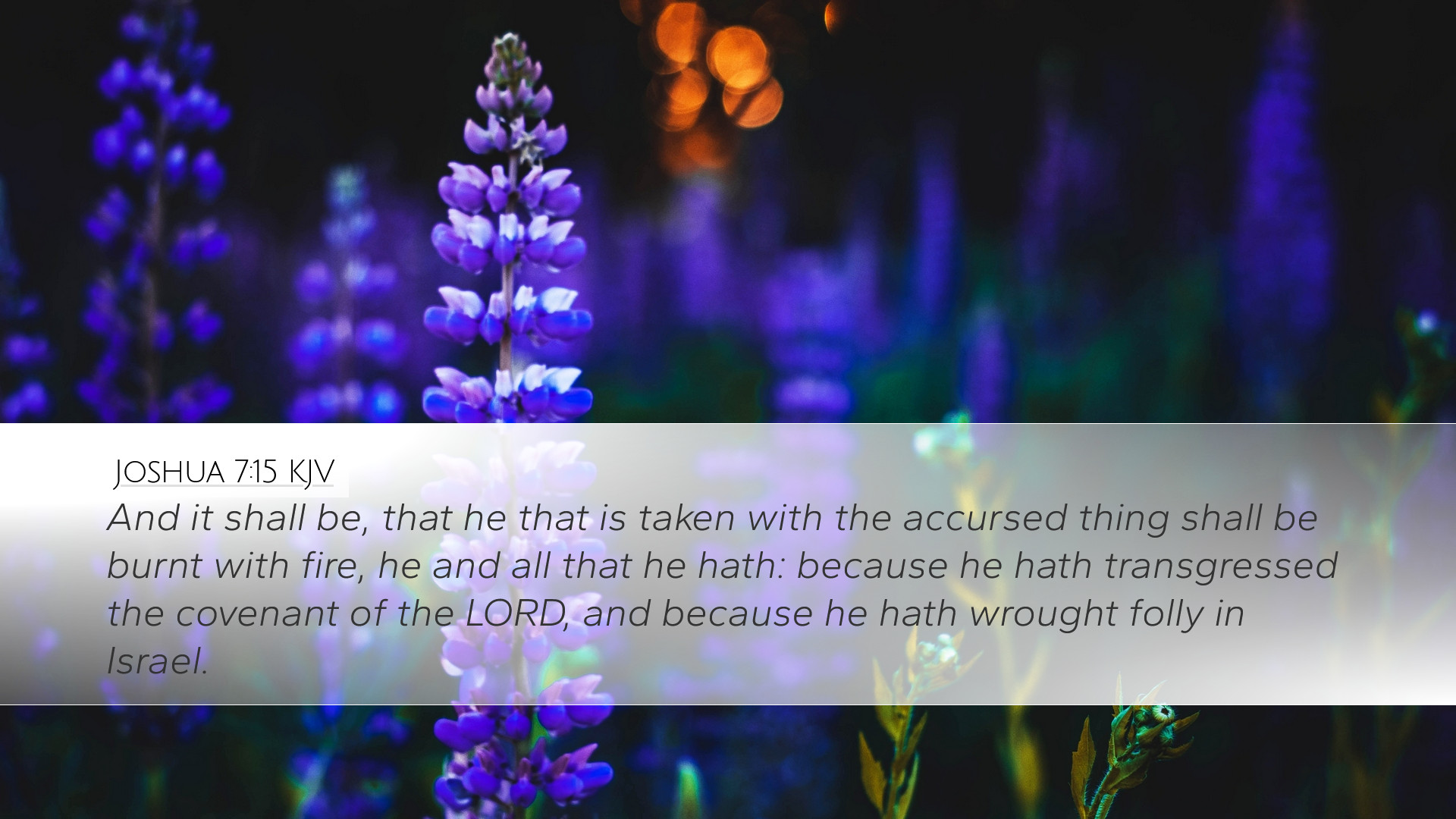Commentary on Joshua 7:15
Contextual Overview
The verse Joshua 7:15 states: "And it shall be, that he that is taken with the accursed thing shall be burnt with fire, he and all that he hath; because he hath transgressed the covenant of the LORD, and because he hath wrought folly in Israel." This verse comes in the aftermath of Israel's failure to conquer Ai due to Achan's sin of taking items devoted to destruction.
The Seriousness of Sin
As seen in many public domain commentaries, such as those by Matthew Henry and Adam Clarke, this verse emphasizes the gravity of transgression against God. Achan's violation not only brought about personal consequences but also corporate ramifications for Israel. Sin is portrayed here as a contagious force that can affect the whole community. Henry states that Achan's act "brought a curse on the whole camp," indicating that individual sin can have broader implications.
Covenant and Consequence
The term "covenant" in this verse highlights the sacred agreement between God and Israel. Clarke elaborates on this by noting that Achan’s actions violated the very essence of this covenant, which demanded exclusive devotion and obedience. The covenantal aspect underscores that sin is not merely a personal failure but an act of betrayal against God who has covenanted with His people. As such, the consequences are equally severe, illustrating God's holiness and justice.
Divine Judgement
The punishment prescribed in this verse—burning Achan and all that he has—serves to communicate the seriousness with which God views sin. Albert Barnes stresses the drastic nature of this punishment as a deterrent against future transgressions. This reflects the principle that certain sins may elicit extreme responses from God, especially when they threaten the welfare of His people.
Implications for Contemporary Believers
This passage communicates vital lessons for today’s believers. Not only does it speak to the necessity of personal integrity, but it also warns that individual misconduct may impact the wider community. As stated by Henry, “A little leaven leavens the whole lump,” suggesting that even a minor deviation from God’s commandments can lead to significant repercussions. Pastors and theologians are reminded to stress the importance of accountability within their congregations.
The Symbol of Fire
The fire mentioned in this verse symbolizes purification and judgment. It serves as a powerful image of God’s desire to consume sin and maintain holiness among His people. Clarke notes that fire is often associated with divine presence and judgment throughout Scripture. The act of burning as a form of punishment reminds contemporary Christians of the need for spiritual cleansing and the importance of confessing sins to God.
Reflections on Corporate Identity
This approach to sin and judgment provides a framework for understanding the corporate identity of believers. Pastoral application of this truth suggests that individuals are part of a greater whole—a body of Christ where actions have consequences that stretch beyond personal spirituality. This understanding calls for a shared responsibility among believers to ensure adherence to God’s commands.
Conclusion
Joshua 7:15 serves as a profound admonition regarding the nature of sin, the seriousness of God's covenant, and the corporate responsibility of God's people. Through insights drawn from public domain commentaries, we are reminded that the stakes of disobedience are high. The implications of Achan’s sin resonate throughout generations, urging believers to seek purity and accountability as they navigate their faith journeys together.


